 A couple of weeks ago I had the great pleasure, and honour, of joining a wonderful panel, including Carel Pedre, Haiti DJ and activist, and Rory Williams of Carbonsmart.com, at the 5th Digital Citizen Indaba in Grahamstown, South Africa. The brief was to talk about digital communication in the context of natural disasters and climate change. I've spent the last three years working on humanitarian policy, so it was a real treat to bring past and current preoccupations together and let them go for a little walk, arm in arm. As ever though, time ran short, so I thought I'd repost the gist of the presentation here.
A couple of weeks ago I had the great pleasure, and honour, of joining a wonderful panel, including Carel Pedre, Haiti DJ and activist, and Rory Williams of Carbonsmart.com, at the 5th Digital Citizen Indaba in Grahamstown, South Africa. The brief was to talk about digital communication in the context of natural disasters and climate change. I've spent the last three years working on humanitarian policy, so it was a real treat to bring past and current preoccupations together and let them go for a little walk, arm in arm. As ever though, time ran short, so I thought I'd repost the gist of the presentation here.
Thinking through what to say, I went back to the basics of understanding what happens in a disaster, and what local, national and international organisations, communities and individuals can do to mitigate their effects and help people recover when they happen. I came across this excellent visualisation of the phases of disaster management and response by the University of Wisconsin's Disaster Management Center, via Özge Yalçiner's thesis.
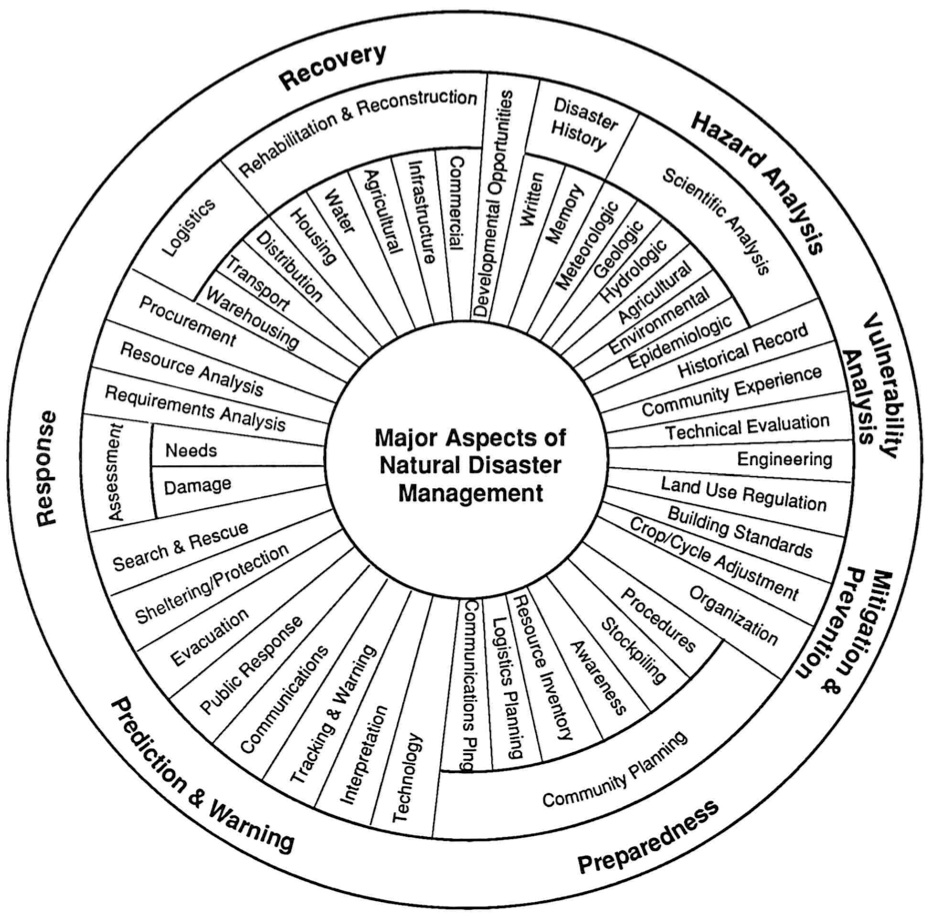
What's striking about this graphic is how little of it is taken up by what we might think of as classic disaster management - maybe a third of it - if you imagine it as a clock face, from about 8 'o' clock to midnight. Even then, the bit that generates most of the donations and media coverage lasts even less - by the time we get up to ten or eleven 'o' clock, when the slow, laborious process of recovery begins, the world's attention has usually moved on, barring major anniversaries and scandals. I think we're seeing this with Haiti right now. But fully half of the wheel is taken up with understanding and preparing for disasters before they happen. Another big slice represents the critical prediction and early warning analysis in which governments and local knowledge play an essential part.
Much of this work, all the way around the wheel, requires community participation - and quite right too. Requirements analysis and needs assessment need local knowledge and community input; reconstruction must be community-led and owned to be successful. Then follow the wheel round to between midnight and 1 'o' clock - there's a segment devoted to gathering disaster histories and experiences, both to learn and to help plan and prepare for future emergencies. Again, this is a key point of community action. Between 2 and 3 'o' clock, vulnerability analyses bring in community maps, workshops, focus group discussions, and other techniques to make sure that interventions and community support mechanisms reach the right people and places at the right moments. And last-mile disaster preparedness and early warning systems and mechanisms just won't work unless they are truly owned by the communities who have to enact them.
This will come as a surprise to none of you, given the focus of this blog, but: I think there's a significant opportunity here to use SMS to help communities to engage with these processes and get their views heard. Complaints and response systems, data-gathering, early warning and evacuation alerts all have and should be delivered using SMS, given its ubiquity in areas that are otherwise hard to reach. Two-way communication using an SMS hub running FrontlineSMS would enable you to send alerts, information about distributions, advice and even messages of support and solidarity; and more importantly, receive information about what's happening on the ground, invaluable local knowledge, and feedback on the success of programmes, and allow people to express what they are feeling. The Haiti experience has shown that this is possible in an emergency setting, and the important work of evaluating the success of those programmes is ongoing - the next step being to build on this learning to improve our understanding of best practice for SMS in emergencies. And as I write, agencies now experienced in using SMS in the fraught days after a disaster are thinking about how to maintain those links, and forge new ones, as they move into the 'recovery phase'. But many organisations are beginning to use SMS in the longer-term, more gradual process of helping people to mitigate and prepare for the risks they're exposed to - we know many are using FrontlineSMS.
We didn't get time to talk much about this on the day, but maybe we can carry on the conversation now. What do you think?
I really enjoyed the event and the thought-provoking discussions about digital activism. I'm very grateful to the DCI team for asking us to be part of the day, and to the lovely participants, who very obligingly joined in with a bit of what I like to call FrontlineSMS Pilates.



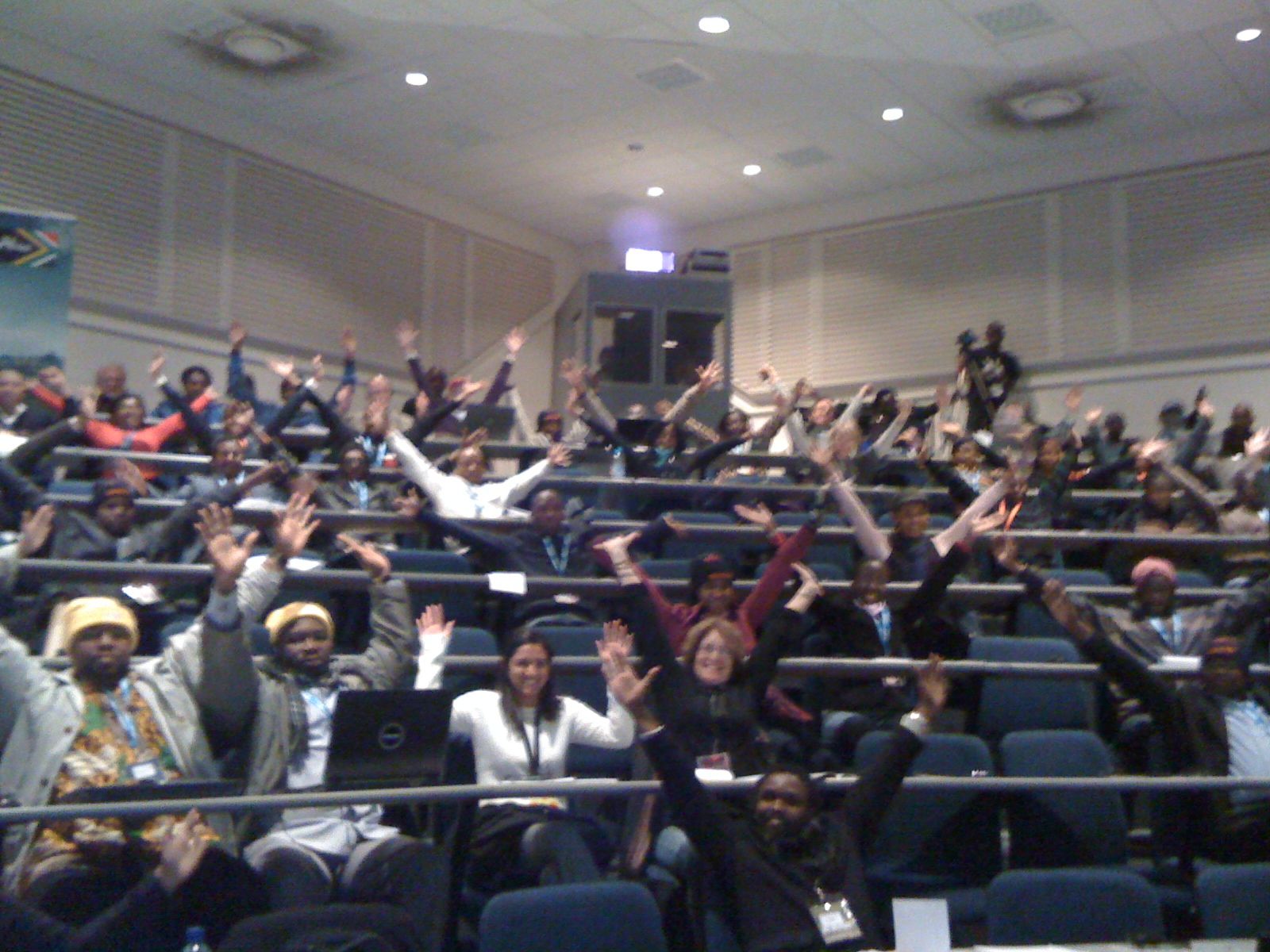

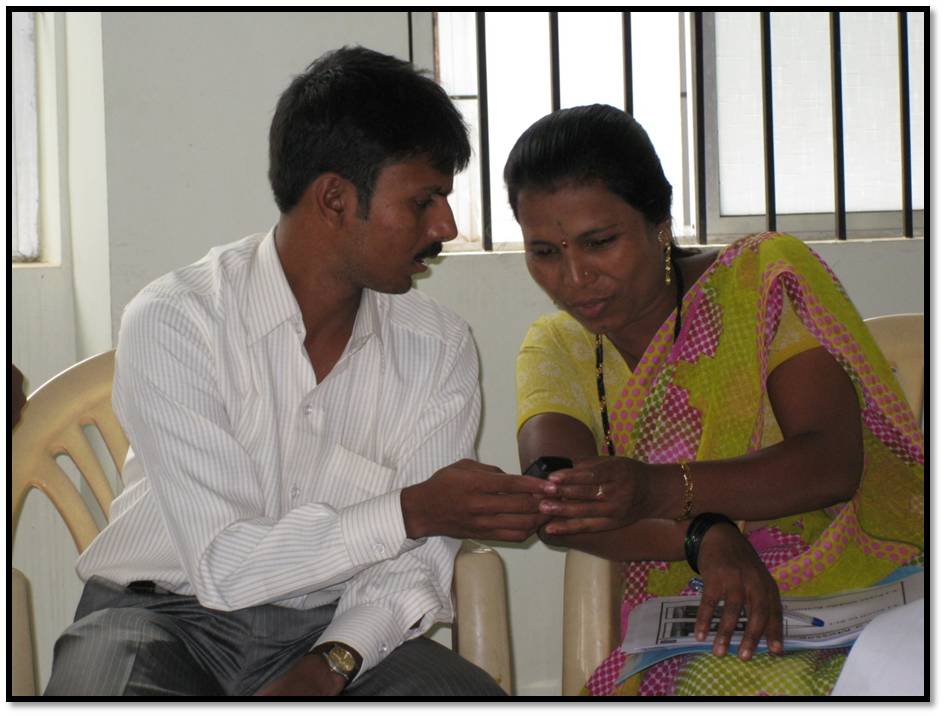
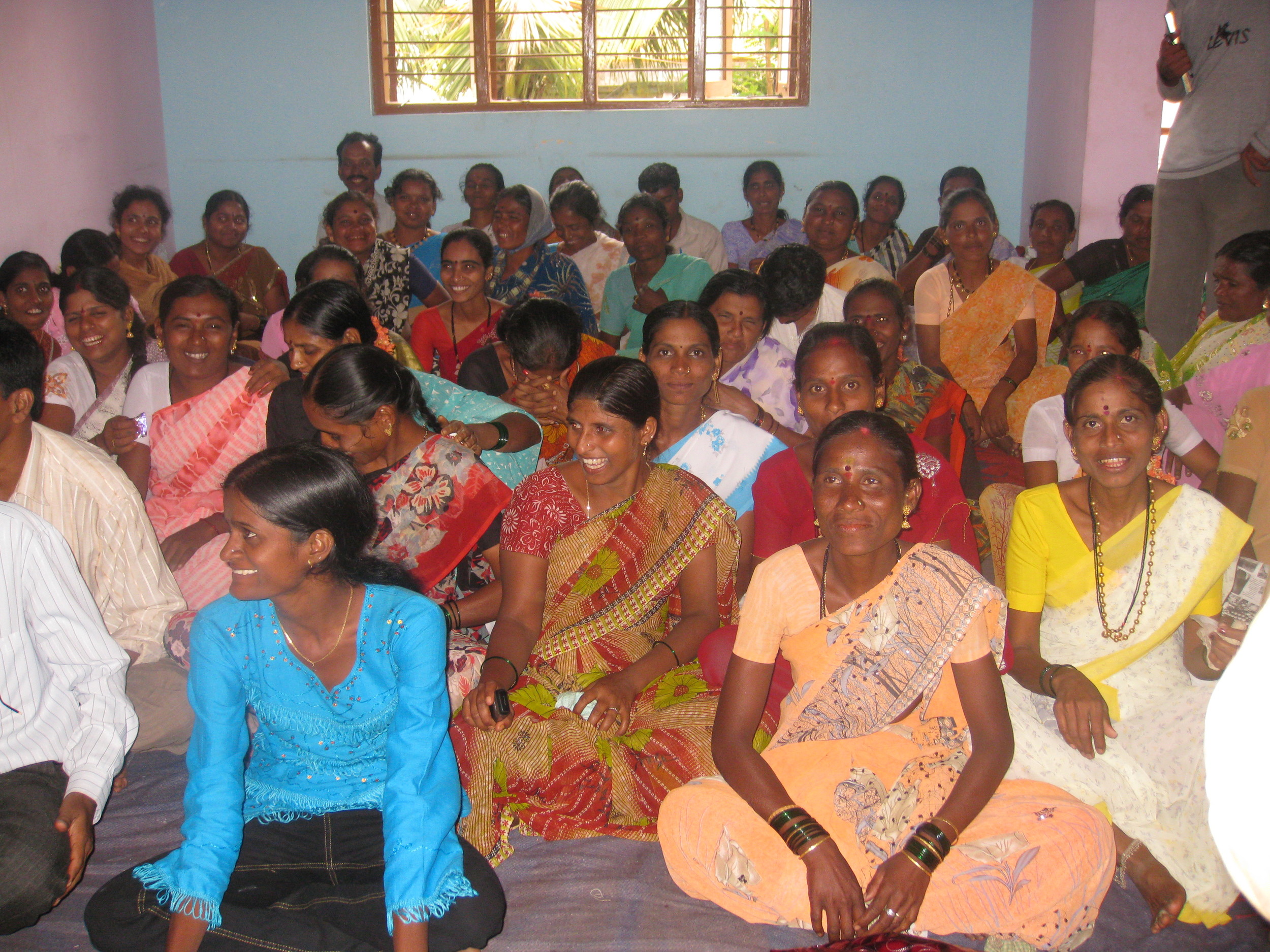
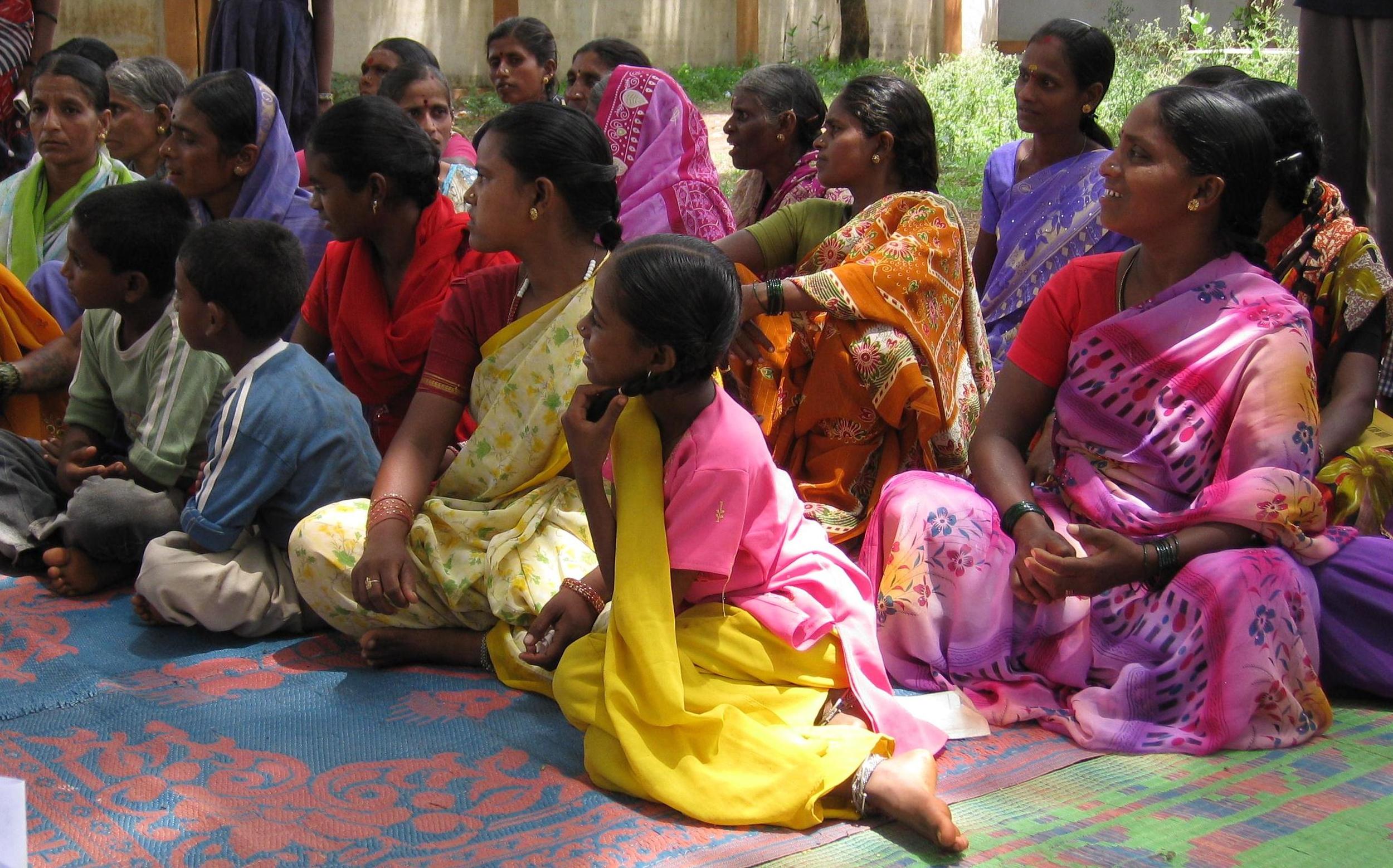
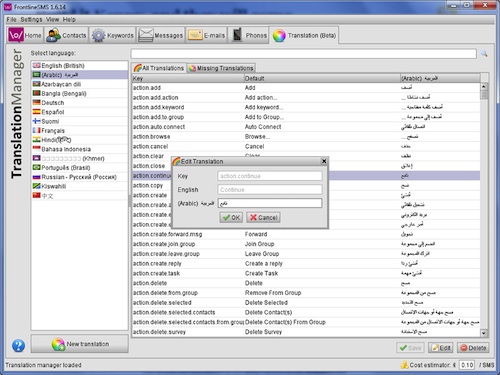
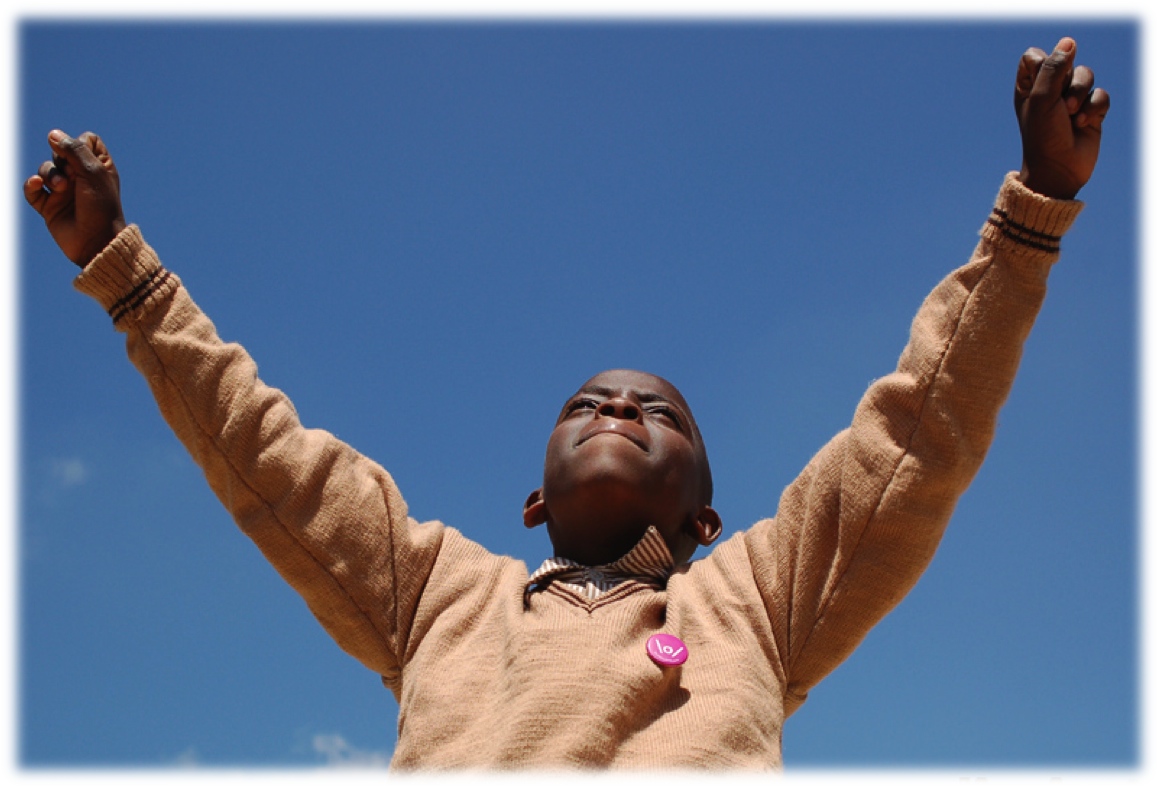 A little Friday fun in a good cause -
A little Friday fun in a good cause - 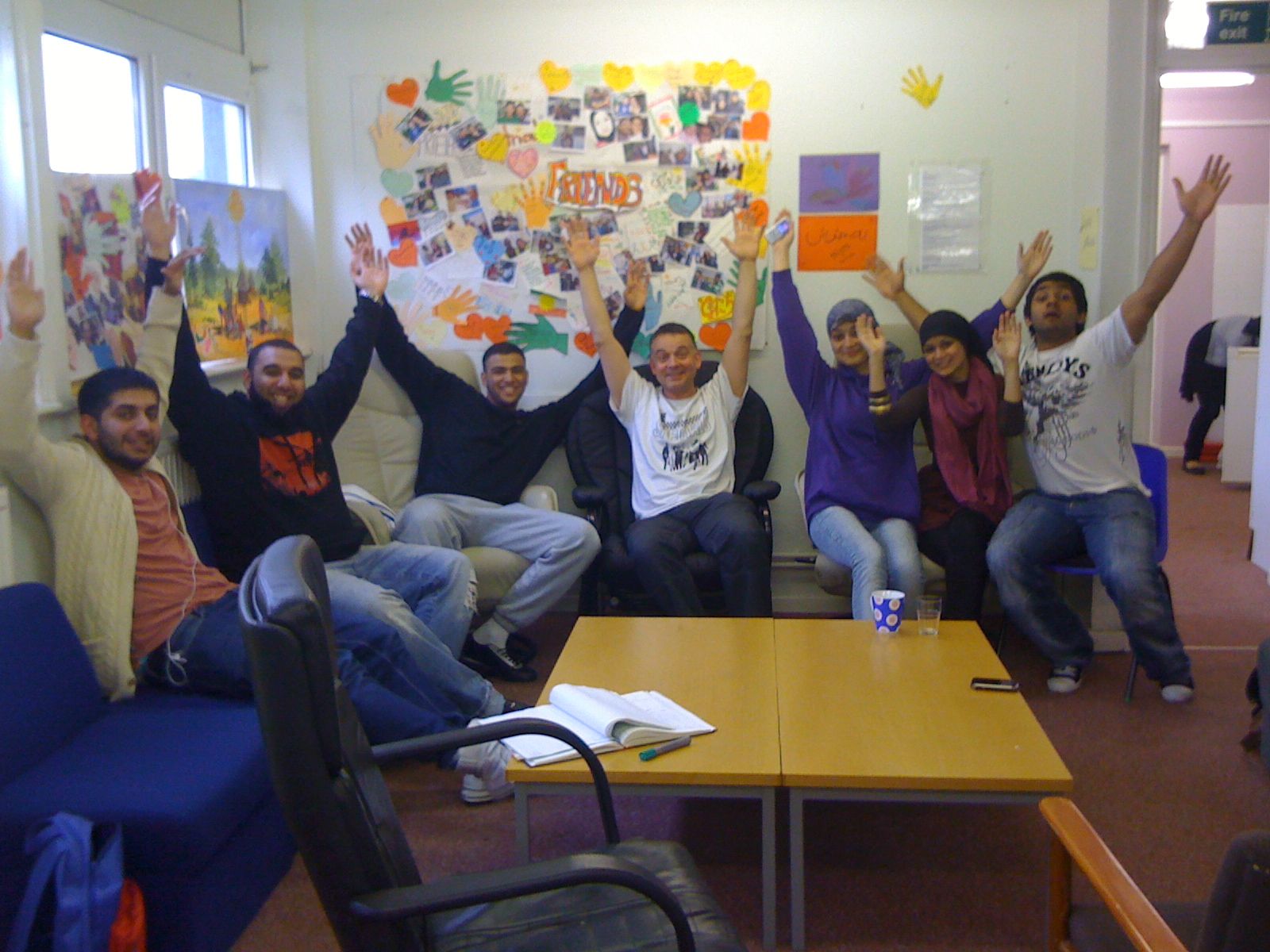
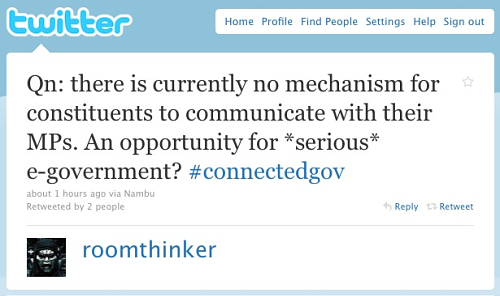
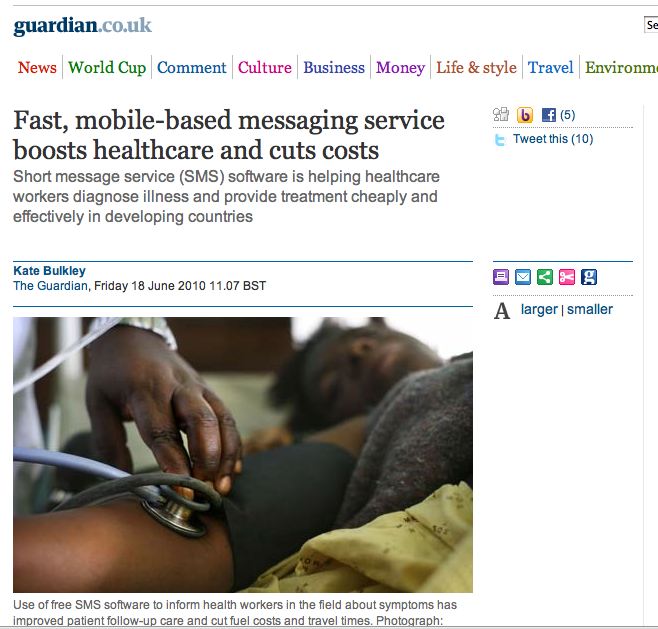 "The community health workers were able to get the information to the right people about symptoms much faster," says Josh Nesbit, executive director of FrontlineSMS:Medic. "Now all patient follow-up is based on SMS messages, which means that less patients are dropping out of their drug programmes because they forget or don't know where to get the drugs."
"The community health workers were able to get the information to the right people about symptoms much faster," says Josh Nesbit, executive director of FrontlineSMS:Medic. "Now all patient follow-up is based on SMS messages, which means that less patients are dropping out of their drug programmes because they forget or don't know where to get the drugs."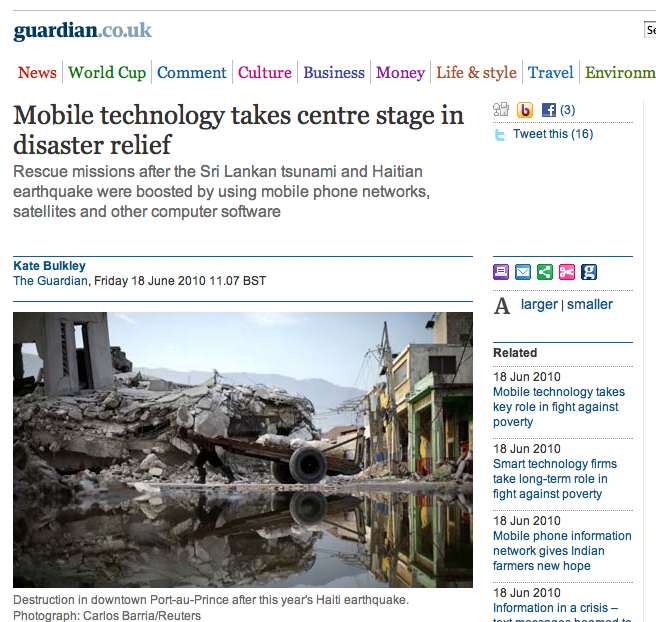 "The good news about mobile penetration is how you can interact with people at scale to serve a social good and be in touch with people's needs," says Josh Nesbit, executive director of
"The good news about mobile penetration is how you can interact with people at scale to serve a social good and be in touch with people's needs," says Josh Nesbit, executive director of 




